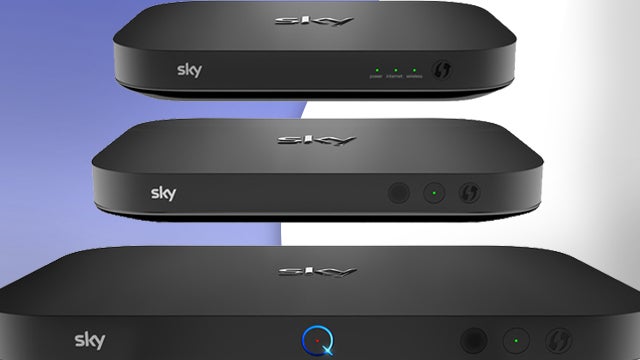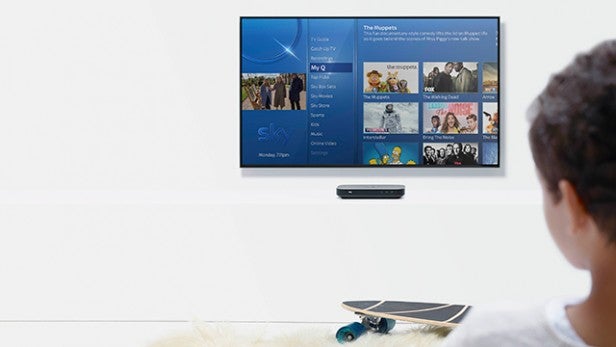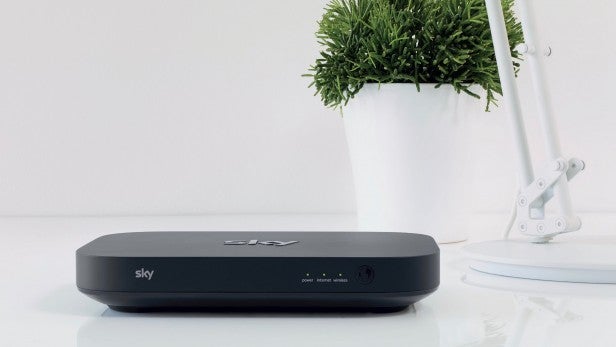Sky Q price: How much will it really cost you?

Sky’s next-generation TV service is now available, with installations taking place as we type this. As you’d expect from Sky, It’s expensive. But if you’re already paying top dollar for a subscription then upgrading might not be as pricey as you’d expect.
At the heart of the Sky Q package is the Sky Q Box. This is pretty much an advancement of the older Sky+ HD box that sits pride of place under so many of our TV sets.
Besides the enticing thought of 4K broadcasts, one of the key things the Sky Q Box can do is output to multiple Sky Q Mini boxes. These are smaller versions of the Sky Q Box that can push content to other screens in your house.
Add in a swish new Bluetooth remote, a sharp image-heavy UI, and improved tablet and smartphone integration, and we have is a strong evolution of the Sky TV experience.
So how much will it cost? Sky’s pricing announcement initially took many by surprise with its apparent reasonableness. But, that’s far from the whole story.
First, let’s run through the two core Sky Q packages and their attendant costs.
Watch our Sky Q hands-on below
Sky Q Bundle – £44 a month with a £99 setup fee
This is your entry-level Sky Q bundle, and the one that relates to Sky’s initial pricing announcement. However, it actually lacks many of the headline features Sky introduced back in November.
After a £99 set-up fee for new Sky Q Bundle subscribers (existing customers pay £50), you’ll have £44 per month to pay. There’s no hardware fee attached to this (or the Silver Bundle for that matter), as you’re not actually buying the Sky Q Box that comes with the package. You’re merely renting them from Sky.
For this you get a 1TB Sky Q Hub (the same capacity as the existing Sky+ HD box) that enables Sky TV in one room – so none of the multi-room-enabling Sky Q Mini boxes mentioned above. You also only get to stream Sky content to a single tablet.
You also get to record three programmes whilst watching a fourth live. You get all of the regular Sky channels with the notable exceptions of the Sky Sports and Sky Movies packages, which will cost extra.
Both bundles now make service and repair visits free.
Related: 10 reasons you’ll want to switch to Sky Q
Sky Q Silver Bundle – £56 a month with a £99 setup fee
Sky’s premium bundle is the one that really represents the full Sky Q experience, as spelled out at launch.
Here, there’s a £99 set-up fee if you’re renting a Sky Q Silver box plus a Sky Q Mini box, and a £149 set-up fee if you’re just after the Sky Q Silver box on its own. Whichever you choose, new customers must then pay £56 per month.
For this you get an upgraded Sky Q Hub with 2TB of storage (double that of the regular bundle), and the ability to record four programmes and watch a fifth live (one more than the regular bundle).
Perhaps the biggest addition here, though, is the Sky Q Silver Hub’s ability to push content to two additional rooms through the Sky Q Mini boxes. You get one Sky Q Mini box in the package, but you have to pay extra if you want to add more. Sky doesn’t say how much the extra boxes will cost.
This Silver box is also the only one of the two that supports 4K, so if you want to be watching UHD content when it hits later in the year then this is the one for.
The Silver bundle enables you to stream content to two tablets rather than one, and once again you get the full set of 300-odd Sky channels, minus Sky Sports and Sky Movies.
Buy or upgrade now from £20 a month at Sky.com
Extra channels – Adding Sky Sports and Sky Movies
In order to receive Sky Movies and Sky Sports on either Sky Q Bundle, you’ll need to pay an extra £1 per month for Sky Movies, and £20.50 per month for Sky Sports.
Alternatively, you can bundle both together for £34.50 per month – a £3 saving. Bargain.
Related: Here’s everything the clever Sky Q Touch remote can do
What about 4K?
You may have noticed one glaring omission from both of these packages. Sky doesn’t say anything about 4K, arguably the headline feature of Sky Q if you’re someone who has invested (or is planning on investing) in a UHD TV set.
It seems likely to us that you’ll have to pay extra to access 4K content through Sky Q. There’s a precedent for this in the fact that Sky has always charged £10 extra for HD.
We’ll have to wait to see what Sky’s plans are with 4K, but there’s every chance it’s going to cost you extra.
Are there hidden costs?
If you’re a new user looking to jump in with Sky Q, you may not have twigged that there’s a significant potential extra cost to consider, hidden away in the blurb.
Put simply, if you want to get Sky Q at the above costs you’ll also need to either pay for Sky Movies and/or Sky Sports, or be a Sky Broadband customer. Otherwise, there’ll be a massive premium to pay.
If you’re with any other broadband provider and you don’t want to pay for those extra channels, the £99 installation fee for the Sky Q Bundle becomes £249. Similarly, the £149 installation fee for the Sky Q Silver box on its own becomes £299.
The biggest increase is for the top Sky Q Silver Bundle, which includes a single Sky Q Mini box with the Sky Q Silver box. The normal price for this is £99, but if you don’t meet any of the aforementioned requirements, you’ll have to pay £299. Ouch.
Related: Sky Q vs Sky HD

Don’t forget the broadband
As we’ve just discussed, a lot of people are going to want to bundle in Sky Broadband with their Sky Q package to keep installation costs down. Sky Broadband customers also get first dibs on Sky Q.
So what about those Sky Broadband costs themselves? Right now Sky is running a deal that sees its standard Sky Broadband package available for free for 12 months. It’s usually £10 per month. It’s not really free, of course: you have to pay £17.40 per month for line rental.
For this you get no download limits and a 17Mbps connection. It’s worth noting here that Netflix, one of the front-runners in the 4K content field, specifies a minimum of a 25Mbps connection for its own 4K content, so if you’re keen to get into the whole 4K ecosystem, this probably isn’t the broadband package for you.
With that in mind, you’ll probably need to bump up your package to Sky Fibre. The entry-level package currently costs £5 per month (it’s usually £10), which will get you speeds of 38Mbps and a 25GB data limit. For unlimited data at those speeds, you’ll need the current top tier at £10 per month (usually £20).
Regardless, you need to factor in an extra £20 to £30 per month on top of the aforementioned costs when totting up your Sky Q package.
(apester:56b4a5348b03d1a9471d9a85)
So how much will it cost you a month?
Right, let’s try and break this down. If you’re looking at the cheapest Sky Q bundle, you’re going to be spending £42 a month. A corresponding bundle from Sky+HD with the Family Pack and Sky Go Extra – both of which are standard on Q – costs you £43.
You can add Sky Sports (£25.50) and Movies (£17) for £34.50, though with Sky Q it seems you don’t have to pay the extra £5.25 for HD. That comes out to £76.50 for Sky Q and £80.75 Sky+ HD, a saving in fact.
Moving up the ladder, if you want Sky Q Silver with Movies and Sports it will cost you £88.50 a month. £1.50 more than the closest comparable Sky+ HD bundle, which costs £87 (this includes Sky Go Extra and multiroom). Got it?
Buy or upgrade now from £20 a month at Sky.com
It’s all quite confusing, but the overall view is that Sky is already an expensive service and yes, Sky Q is pricey but it’s not that much more than the existing Sky service.
What do you think of the pricing for Sky Q? Let us know in the comments below


